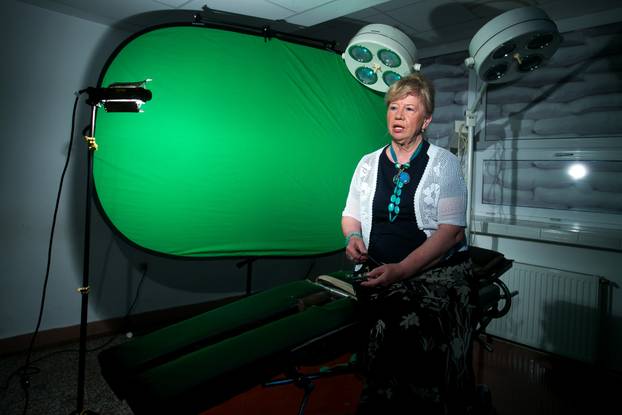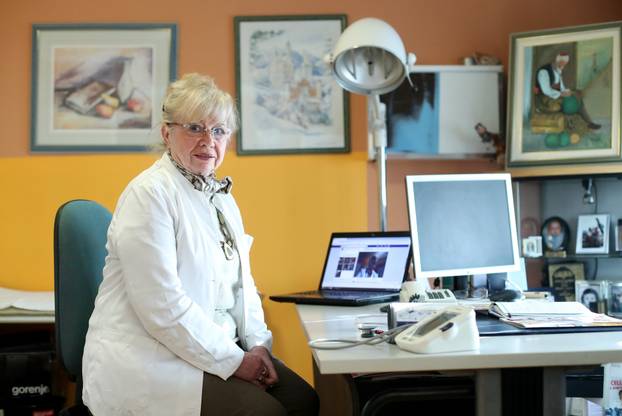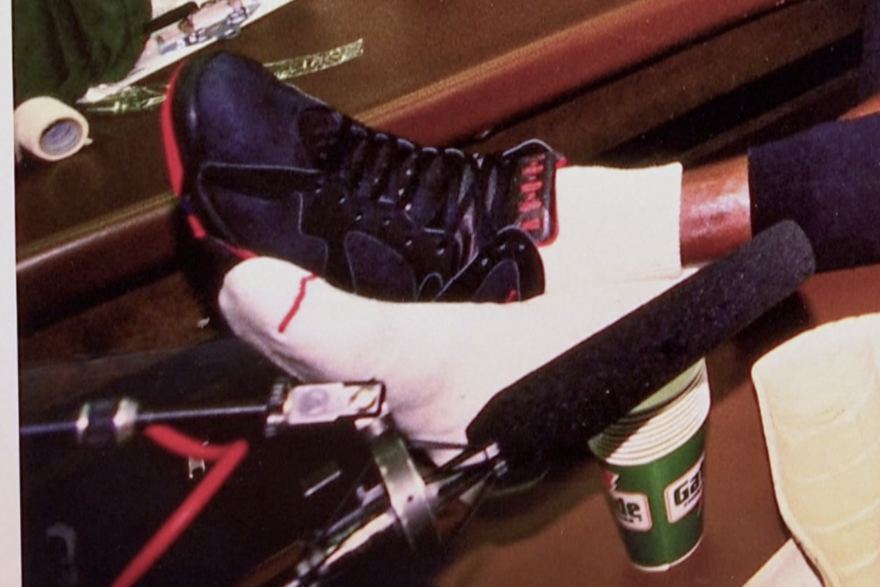Vukovar heroin dedicated her life to medicine, face to face with the executioner, survived the camp

« At the time when I enter the medical profession members, I solemnly promise that I will put my life in the service of humanity. I will absolutely respect human life from conception itself. Even under the threat, I will not allow my medical knowledge to be used contrary to the laws of humanity. Sadika Biluš, a reputable internist and gastroenterologist, a Vukovar hospital war doctor during the Homeland War. Just as she promised, in the most difficult period of her life, she put herself into the service of humanity, for months, helping to help the severe wounded who arrived at the hospital at the time of the occupation of Vukovar. She was 48 years old, she was a mother of two, she lived in Vukovar, who loved and was the only internist who remained in the hospital at the time when he was hell, because everyone else, Sadika’s male colleagues, fled the city.
VUKOVAR: The beginning of the recording of a documentary movie about the doctor of Sadiki Biluš |
Sadika was born in Zivinice in BiH. She still decided in elementary school that she would be a doctor because her father Hrusto Bajrić had a hard time suffering from cancer. Seeing him suffering, she decided that she would devote her life to the treatment of others. She went to Belgrade to study medicine. She was the first woman to graduate from the Belgrade Faculty of Medicine before Rok, although, as she said, it was a difficult time for women – they were viewed as a lower being.
In Belgrade, she met the Sabadoš engineer, who brought her to Vukovar. She married him. Unfortunately, it was it that diagnosed him with the aneurysm of the brain, of which he died at the age of 31. She remained a widow with her son Dario. She continued to work in Vukovar as a doctor. Later, she married Davor Bilusa to him a daughter Marina. For years, she has built an internist and gastroenterologist’s career and has become one of the leading experts in these fields.
Face face with the executioner
And then the first wounded Croatian police officers arrived at the Vukovar hospital, after attacking them in Borovo Selo. For Sadik, that day was the beginning of an endless series of painful and difficult days with wounded who, as time went on, arrived at the hospital in increasing numbers.
With the day, with other doctors who chose to stay in the Vukovar War Hospital, hundreds of wounded, regardless of their nationality, in conditions that are far from normal.
« I could have left, like many of my colleagues, but how to leave these wounded people? It didn’t occur to me. Well, I laid the Hippocratic oath, » Sadika would say.
Although she rarely talked about the war days in Vukovar during her later life, she did not hide that her 17th and 18th November 1991 remained in her memory.
Velika Gorica: Dr. Sadika Biluš |
« That night, November 17, when Vukovar fell, more than four thousand Vukovar people came to the hospital. They hoped that the hospital would be more secure, and the opposite happened. The Chetniks thought the Ustasha litter was hiding the armament. When the Sljivancanin came, they began to separate women from men. I saw the hospital in the courtyard of the hospital.
During the occupation of Vukovar, she also documented the videos of everything that happened around it: shelling the hospital and the city, the wounded who arrive without limbs, women and mothers who were left without their children … But all of which took her to the Sljivancanin in the hospital.
Like other hospital employees, Dr. Biluš was taken to the camp. First in Negoslavci, and then to Sremska Mitrovica, where both physically and mentally abused her.
‘A cell for a doctor’
As a sign of resistance to people, people were hungry strikes. There at one point, she tried to kill herself by hanging on a bar in a solitary confinement, but the bar broke and Sadika fell to the floor. She didn’t tell anyone for a long time. Her war testimonies were released in the documentary « Cell for the Doctor », in which she told all her most softened secrets.
She was released on December 6, 1991, on her birthday, in the exchange of prisoners. She never left her symbolism of birth.
Although she moved to Zagreb after the war, that is, she simply stayed after leaving Vukovar, she went to her town often. She renewed her house in Vukovar and worked in the garden whenever she had time.
In Zagreb, after the war, she founded the Tommy Clinic in Velika Gorica, where she worked until the last weeks of her life. She particularly distinguished herself with humanitarian work and after the 2020 earthquake when she, as a doctor at over 77, provided free medical assistance to the inhabitants of Banija.
When her daughter Marina passed away over the past year, who was diagnosed with a serious illness, Sadika did not recover from that loss.
She passed away on May 2, 2025, exactly 34 years after a doctor welcomed the first victims of the massacre in Borovo Selo as a doctor on duty. She left at the age of 83, after a short and serious illness, far from her beloved Vukovar. Just like her friend and war colleague, Dr. Vesna Bosanac, Sadika worked until a few weeks before her death.
Was distinguished by the Croatian Medical Chamber’s Honor Medal for the Croatian Medical Chamber
exceptional contribution to medicine and society.







